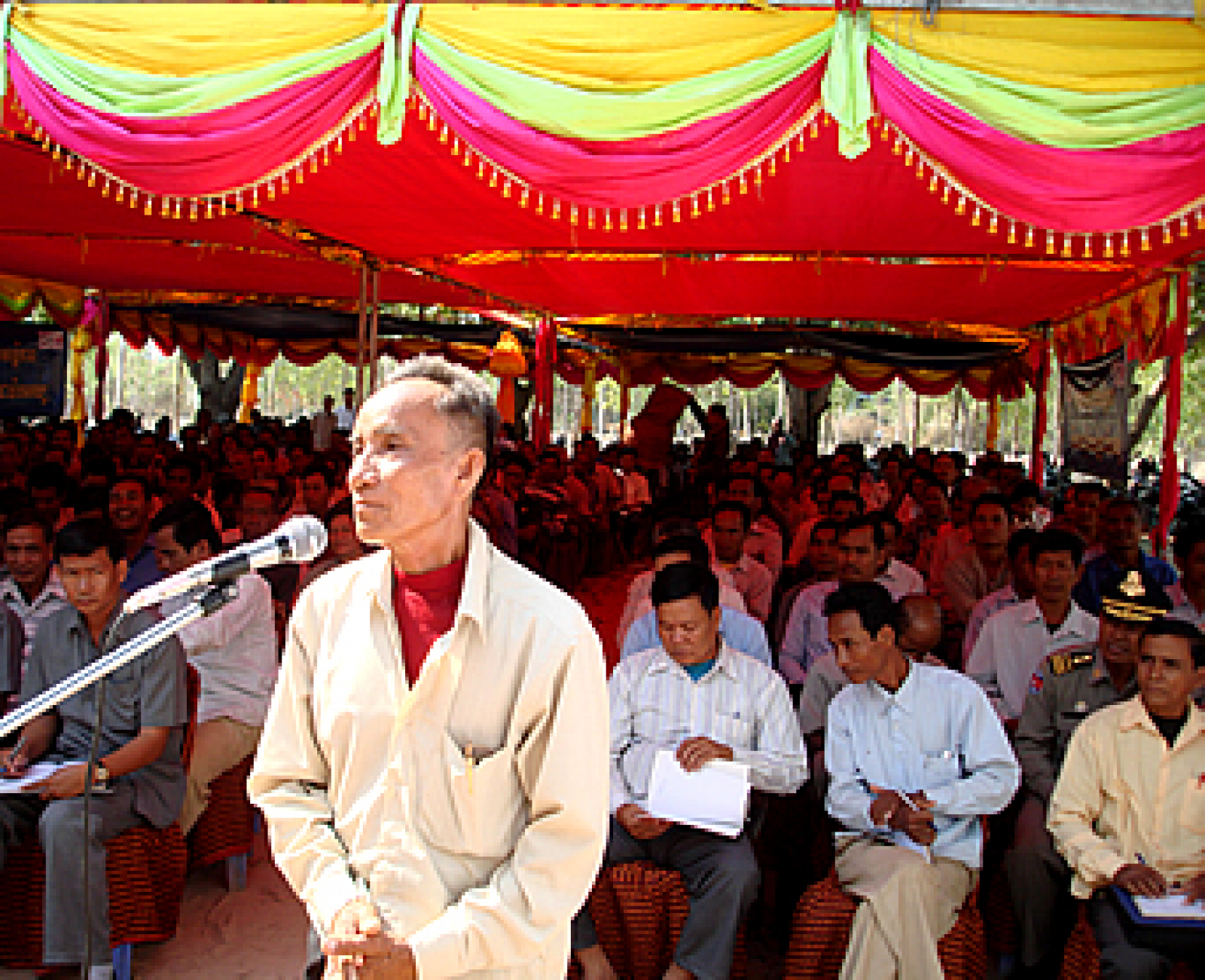
SHARE
In Cambodia, members of the National Assembly have few opportunities to interact with their constituents. There is no government mechanism for citizens to express their views to their elected representatives in Phnom Penh, and members seldom visit their constituencies. The few members who do try to reach out to constituents on their own have limited time and no organized way to collect information on issues of concern to voters. As a result, many citizens still have a narrow understanding of the role of the National Assembly and parliamentarians have limited knowledge of constituents' needs.
Constituency dialogues provide a much-needed outlet for this constituent-representative interaction. Similar in format to a town hall meeting, they provide one of the only ways for Cambodians to voice concerns and gain a better understanding of the roles and responsibilities of National Assembly members. The public events also provide thousands of citizens with a rare opportunity to hear opposition party viewpoints and broaden understanding of their political options.
The dialogues also allow parliamentarians to hear directly from constituents, giving them a chance to be more responsive to voters' needs and potentially increasing their party's chances for re-election as they incorporate this feedback into their platforms.
Four hundred to 600 local residents attend each NDI-organized dialogue. National Assembly members from different parties give brief opening remarks, and then an NDI moderator opens the floor for discussion. Audience members raise local and national issues and address questions directly to parliamentarians, often requesting that action be taken to resolve a particular problem. The lawmakers update their constituents on Assembly and government activities and explain their party’s policies on issues ranging from land and water management, anti-corruption, employment, infrastructure, education and healthcare. The events are broadcast on national radio and attract a wide listenership.
An expansion of the constituency dialogue program is now underway as part of a larger program called Accountability in Governance and Politics (A-GAP). The program, which is funded by the U.S. Agency for International Development, encourages the Cambodian government to strengthen accountability and transparency and to provide its citizens with greater access to information. NDI, along with the International Republican Institute and the International Foundation for Electoral Systems, will carry out several new or expanded projects as part of the overall A-GAP initiative.
NDI is increasing the number of constituency dialogues held each year from 10 to 24 and is expanding to two additional provinces so that all 12 Cambodian provinces with multiparty representation in the National Assembly are now included.
"There are few chances for parliamentarians to reach out to the public and exchange views, and no other public forums in which the opposition and ruling party sit together at the same table and participate in a debate format," said Laura Thornton, NDI's resident director for Cambodia, "The constituency dialogue program exposes people to their political options and is truly unique."
A-GAP's official kick-off event was held in Phnom Penh on April 20 and featured U.S. Ambassador Carol Rodley and Cambodian Deputy Prime Minister Sok An. Representatives from government, political parties, civil society and the media were invited to attend the event.
"I'm excited about the extensive expertise and experience each of these organizations is bringing to their respective areas of the program," Ambassador Rodley said. "I am confident that each of these organizations will make a contribution to helping Cambodia and that we will see positive results over the next five years."
Pictured above: A citizen asks a question at a constituency dialogue in Cambodia
Published June 21, 2010


